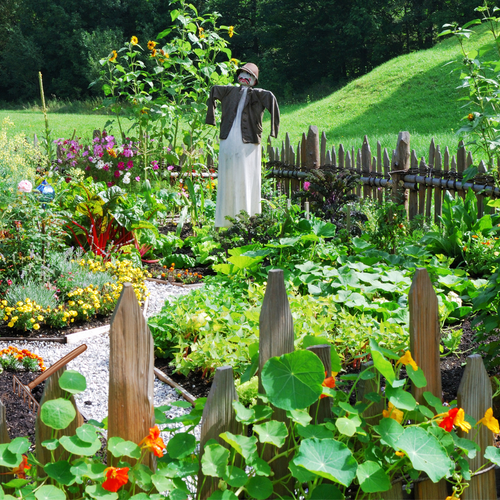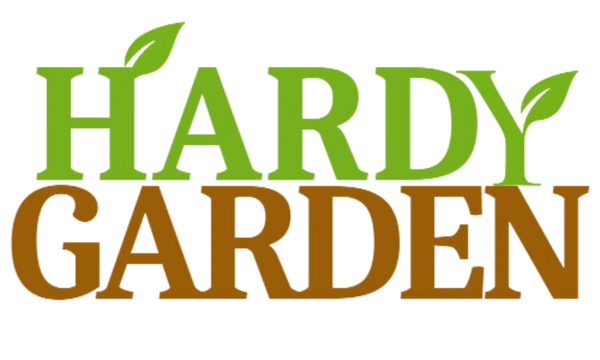
Why Should You Start Backyard Gardening
Share
Ready to embark on a journey that promises veggies and a whole new way of life? Get ready to dive into the green revolution that is backyard gardening. We're here to inspire, guide, and sprinkle a bit of gardening magic on your everyday routine.
We're about to unfold the secrets of backyard gardening that will leave you itching to grab a shovel and dig into the lush world of homegrown joy! Let's start digging our garden plot and green adventure together!
15 Reasons to Start Backyard Gardens
There are many reasons why you should start your backyard garden.
1. Access to Fresh, Organic Produce
Homegrown fruits, vegetables, and herbs are fresher, tastier, and more nutritious than store-bought options. You have full control over what goes into your garden, ensuring that your food is free from harmful pesticides and chemicals.

2. Health Benefits:
Backyard vegetable garden offers many health benefits. Engaging in gardening activities allows you to spend time outdoors, soaking up vitamin D from the sun. It's a physically active hobby promoting exercise through planting, weeding, and harvesting. Additionally, consuming homegrown fruits and vegetables ensures a fresh and nutrient-rich diet, contributing to overall well-being.
3. Saves Money on Groceries
Growing your food significantly cuts grocery expenses. Instead of buying expensive organic produce, you can harvest fresh vegetables and fruits right from your backyard at a fraction of the cost. This financial advantage becomes even more pronounced over time as the garden becomes established.
4. Reduces Carbon Footprint
Backyard gardening helps lower greenhouse gas emissions by reducing the need for food transportation, packaging, and storage. Growing food locally minimizes environmental impact and supports a more sustainable lifestyle.
5. Therapeutic Stress Relief:
Gardening is known for its therapeutic effects on mental health. Spending time in nature, tending to plants, and connecting with the earth can alleviate stress and anxiety. The rhythmic and repetitive nature of gardening tasks has a calming effect, and the sense of accomplishment from nurturing plants can boost self-esteem and contribute to an overall positive mindset.

6. Reduced Food Miles:
Growing your own food significantly reduces the distance your food travels from farm to table. This decrease in "food miles" minimizes the carbon footprint and supports a more sustainable and locally focused food system. It is an effective way to contribute to environmentally conscious living.
7. Improved Air Quality:
Plants play a crucial role in purifying the air by absorbing pollutants and releasing oxygen. By cultivating various plants in your backyard, you improve air quality in your immediate surroundings. This is especially beneficial in urban areas where air pollution is prevalent.
8. Enhances Home Aesthetics:
A well-maintained garden enhances the aesthetic appeal of your home. Beautiful flowers, lush greenery, and well-designed landscaping create an inviting atmosphere and increases your property's curb appeal. A visually pleasing garden can be a source of pride and joy for homeowners.

9. Enjoy Seasonal Variety:
Backyard gardening allows you to enjoy various seasonal produce throughout the year. From fresh spring greens to summer fruits and fall vegetables, cultivating various plants ensures a constant rotation of flavors in your meals. This seasonal variety adds excitement to your culinary experiences and aligns with the natural rhythm of the changing seasons.
10. Educational Opportunities:
Backyard gardening provides valuable educational opportunities, especially for children. Involving kids in the gardening process teaches them about plant life cycles, the importance of soil health, and the basics of ecology. It's a hands-on way to instill a sense of responsibility, patience, and a connection to the natural world, fostering a lifelong appreciation for sustainable practices.
11. Community Building:
Backyard gardening can be a communal activity that brings neighbors together. Shared gardening spaces or community gardens encourage collaboration and knowledge exchange among individuals with a common interest. This sense of community fosters connections, promotes teamwork, and strengthens the social fabric of neighborhoods.

12. Customization and Experimentation:
Backyard gardening allows you to customize your plant selection based on personal preferences and dietary needs. You can experiment with different varieties and discover what thrives in your specific climate and soil conditions. This experimentation adds a sense of adventure to gardening and allows you to tailor your garden to suit your tastes.
13. Increased Physical Activity:
Maintaining a backyard garden requires regular physical activity, from digging and planting to weeding and harvesting. Increased physical engagement promotes a healthier lifestyle by promoting cardiovascular fitness, flexibility, and muscle strength. Gardening is a practical and enjoyable way to stay active without needing a formal exercise routine.
14. Food Security:
In uncertain times, having a backyard garden can contribute to food security. The ability to produce your own food ensures a degree of self-sufficiency and reduces reliance on external sources. This becomes particularly relevant during times of economic instability or disruptions in the supply chain.
15. Reduction of Green Waste:
Backyard gardening allows for the responsible disposal of green waste. Composting plant scraps and kitchen waste can create nutrient-rich compost to enhance soil fertility. This sustainable approach minimizes the waste sent to landfills and supports a closed-loop system within your gardening ecosystem.

Effortless Plants to Grow in Your Backyard Garden
| Vegetables | Herbs | Flowers |
| Lettuce | Lavender | Marigold |
| Cucumber | Parsley | Nasturtiums |
| Beets | Basil | Daisy |
| Tomatoes | Rosemary | Sunflower |
| Leafy Greens | Mint | Cosmos |
Conclusion
Starting a backyard garden is like opening a treasure chest of benefits for beginners. It's not just about growing plants – it's about reaping the rewards of a healthier, more satisfying lifestyle. A chance to learn, appreciate nature, and create beauty outside your doorstep.
Try backyard gardening, whether you have a sprawling garden or just a tiny balcony. Your gardening adventure starts with one seed – plant it today and watch your own vibrant oasis bloom!
Ready to get started? Visit Hardy Garden for more gardening tips, guides, and everything you need to make your garden flourish!
